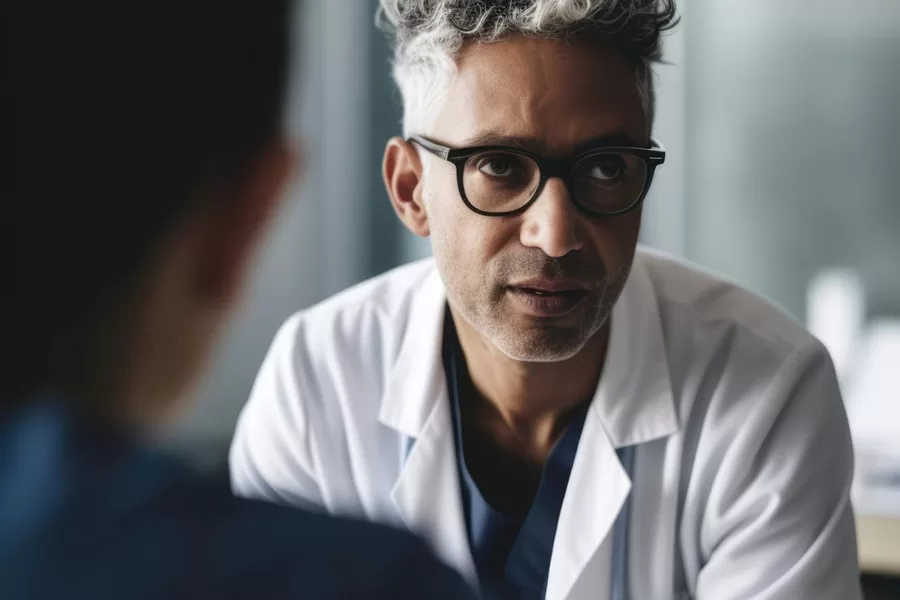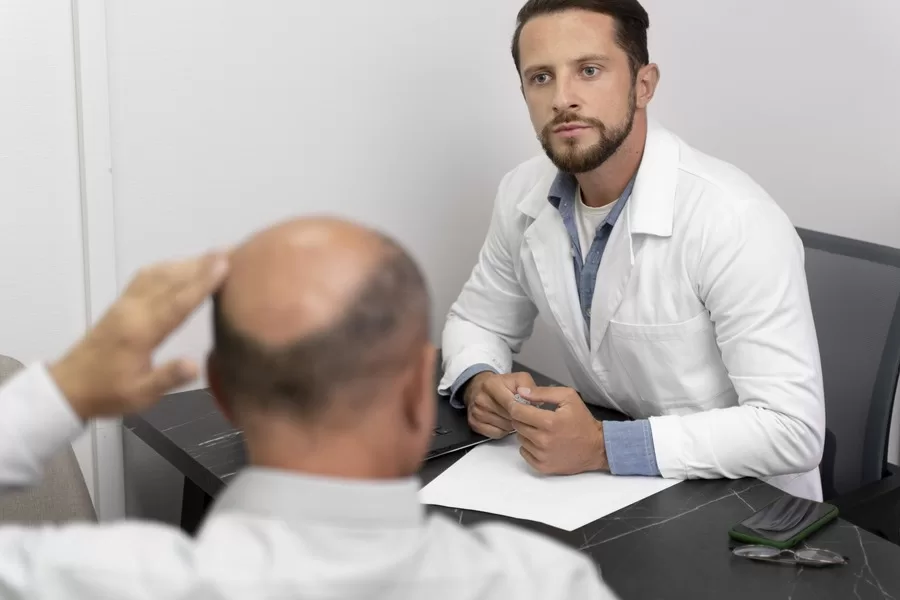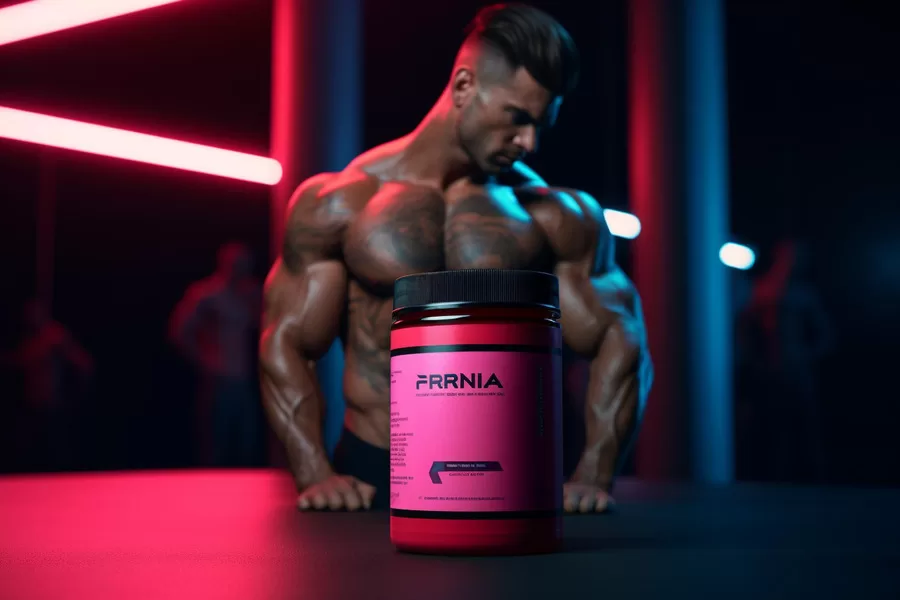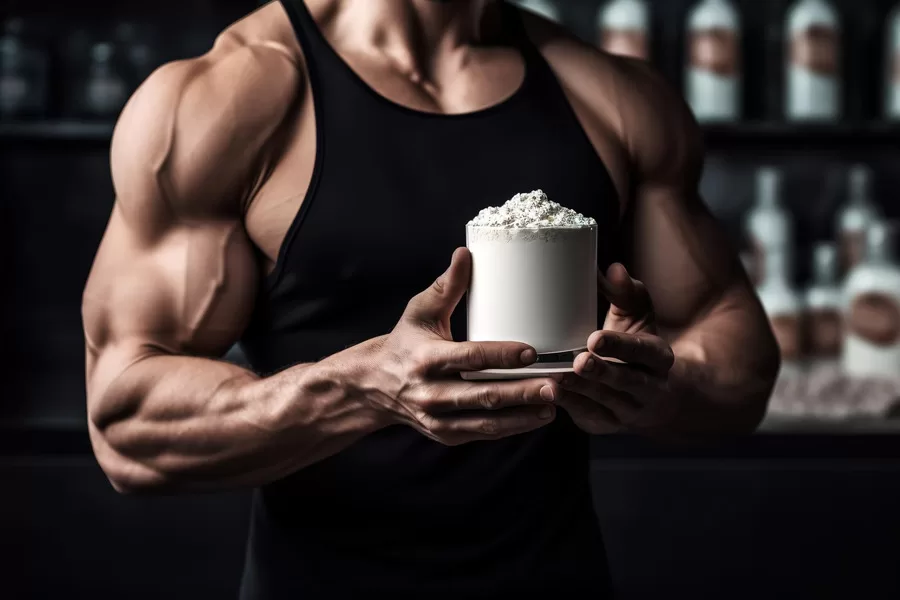
TRT is a well-known, rapid, and widely used treatment for low testosterone that is transformative. But what happens when you stop?
What is TRT (Testosterone Replacement Therapy)?
Simple Explanation of TRT: It’s a treatment mostly for men who don’t have enough testosterone. Testosterone is a really important hormone in our bodies. It helps with lots of things like feeling strong, having energy, and being in a good mood. When someone has inadequate testosterone levels, they might feel really tired, weak, or unhappy. TRT is there to help by adding more of this hormone to the body.
When Do People Need TRT?: Men might need TRT for a few reasons. Often, as men get older, their bodies make less testosterone. Also, if a man has certain health problems or has had treatments that alter hormone levels, he low testosterone levels might exist. Signs that a man could need TRT include feeling extra tired, having trouble making muscles stronger, feeling sad, or losing interest in sex.
Good Things About TRT: TRT can really help. It can make people feel more energetic, happier, and stronger. It’s good for making muscles stronger and can help with sexual health. Some people also notice their bones getting stronger and it can help with certain blood conditions.
Side Effects of TRT: While TRT can do a lot of good, it can also have side effects. It might cause skin issues like acne, trouble sleeping, or changes in the body like bigger breasts in men. It can also lower sperm count, which affects having children. Long-term use of TRT might have effects on the heart or prostate. So, it’s important to use TRT under a doctor’s care. The doctor can keep an keeping an eye on these adverse consequences and adjust treatment if it’s needed.
Different Forms of TRT
Testosterone Replacement Therapy (TRT) isn’t just one thing. It comes in different forms, and each one works differently. This is good because it means you can find a way that fits your life and needs.
Injections
This is when you get testosterone through a shot, usually in your muscle. It’s done every few weeks, depending on what your doctor suggests. The good part is you don’t have to think about treatment every day. But, some people don’t like needles or might feel ups and downs in their energy and mood because of the timing of the shots.
Patches
Testosterone patches stick to your skin. You usually put on a new one every day. They’re easy to use, just like putting on a band-aid. But, you have to remember to do it every day, and some people might get a skin reaction where the patch was.
Gels
These are like lotions that you rub on your skin. The testosterone gets absorbed into your body that way. It’s simple and part of a daily routine, but you have to be careful not to let the gel touch others, especially women and children, as it can affect them too.
Tablets
Some types of TRT come in pill form. You swallow them just like any other pill. This is really convenient for a lot of people. However, there can be concerns about the effects on the liver, so your doctor will watch this closely.
Each type of TRT has its pros and cons. It’s all about what works best for you. Your lifestyle, your health, and even your personal preference matter when choosing a type of TRT. Some people start with one kind and then switch to another. It’s okay to change if something else might work better for you.
Remember, the most important thing is to work closely with your doctor. They can help you decide which form of TRT is the best fit for you, monitor how it’s working, and make changes if needed. The goal is to find the right balance for your body and life.
What Happens When You’re on TRT?
- Feeling More Energetic: One of the first things you might notice is that you feel more awake and active. It’s like suddenly having more fuel in your tank to do the things you love.
- Better Mood: If you’ve been feeling down or grumpy, TRT might help lift your spirits. It’s like the sun coming out after a bunch of cloudy days, making everything seem a bit brighter.
- Muscles Might Get Bigger: TRT can help you build more muscle. If you exercise, you might see your muscles getting stronger and bigger faster than before.
- Changes in Body Fat: Along with bigger muscles, you might notice some changes in your body fat, especially around your belly. It’s like the therapy helps your body figure out where to put fat and muscle better.
- Feeling More Interested in Sex: Testosterone is important for your sex drive. With TRT, you might find yourself more interested in sex, which can be a big change for some people.
- Skin Changes: Your skin might get a bit oilier, and you might even see some pimples. It’s like your skin is going back to how it was when you were a teenager.
- More Hair Here and There: You might start to see more hair on your face or body, and sometimes, the hair on your head might change a bit too.
- Swelling in Some Body Parts: Sometimes, you might notice your hands, feet, or ankles get a bit swollen. This is usually not a big deal and goes away on its own.
Everyone’s body reacts differently to TRT, so what you experience might be different from someone else. The key is to keep an eye on how you feel and tell your doctor about any big changes. They’re there to make sure everything goes smoothly for you.
What Happens After Stopping Testosterone Replacement Therapy?
When you stop Testosterone Replacement Therapy (TRT), your body goes through some changes. It’s like adjusting back to how things were before you started the therapy. Let’s look at what kinds of changes you might see.
Physical Changes After Stopping TRT
- Energy Levels: You might feel less energetic than when you were on TRT. It’s like your body’s power source isn’t as strong as it used to be.
- Muscle and Fat: Your muscles might not feel as strong, and you might see changes in where your body stores fat. It’s like the body is reshuffling things around again.
- Sexual Health: You might notice changes in your sex drive or performance. It’s not the same for everyone, but it’s something to be aware of.
- Hair and Skin: Changes in hair growth and skin texture might reverse. If you had more hair growth during TRT, it might slow down, and your skin might change too.
Psychological and Emotional Impacts
- Mood Changes: You might feel mood swings or a return of feelings like sadness or irritability. It’s important to talk about these feelings if they happen.
- Confidence Levels: Some people feel less confident or notice a change in their self-esteem. It’s a normal reaction to the body’s changes.
Long-term Health Implications
- Bone Density: TRT can affect your bones. After stopping, it’s a good idea to check on your bone health, especially if you’re older.
- Heart Health: There’s some talk about how TRT and stopping it might affect your heart. It’s something to keep an eye on with your doctor.
- Hormone Levels: Your body will need to readjust its hormone levels. This can take time, and you might need to work with your doctor to keep everything balanced.
Remember, stopping TRT is a big change for your body. Everyone’s experience is different, so it’s important to stay in touch with your doctor and report any major changes you notice. They’re there to help you through this transition and make sure you stay healthy.
Staying Healthy After Testosterone Replacement Therapy
After you stop Testosterone Replacement Therapy (TRT), it’s important to look after your body and mind.
Caring for Your Body
- Get Moving: Exercise is a great way to keep your body strong and healthy. You don’t need to do anything too hard. Simple activities like walking, cycling, or yoga can make a big difference.
- Eat Healthy Foods: Eating the right foods can help your body adjust after TRT. Include lots of fruits, vegetables, and proteins in your diet. Good nutrition is key to feeling good.
- Rest Well: Getting enough sleep is crucial. It helps your body and mind recover and stay balanced. Try to get regular, good-quality sleep.
- Pay Attention to Your Body: If you’re feeling unusually tired or not quite right, it’s important to notice these changes. Listening to your body is the first step in taking care of it.
Caring for Your Mind
- Talk About Your Feelings: It’s okay to have ups and downs. Talking to friends, family, or professionals about how you feel can be very helpful.
- Relax and Enjoy: Find activities that relax you and make you happy. Whether it’s reading, gardening, or just hanging out with your pet, doing things you love can improve your mood.
- Stay Social: Keeping in touch with people you care about can lift your spirits. Social connections are important for your mental health.
The Role of Your Doctor
- Check in Regularly: It’s a good idea to see your doctor regularly after stopping TRT. They can help you monitor your health and make adjustments as needed.
- Be Open and Honest: Tell your doctor about any changes or concerns you have. They can provide the best help when they know what’s going on with you.
- Follow Medical Advice: If your doctor gives you advice or a treatment plan, try to stick to it. They know what’s best for your health journey.
Remember, it’s normal to need some time to adjust after stopping TRT. Taking care of your physical and mental health is important. With the right steps and support, you can navigate this change smoothly.
Conclusion
TRT revolutionizes treatment for low testosterone, impacting vigor, mental state, and physical resilience, necessitating expert oversight. A spectrum of TRT forms, such as injectables, dermal patches, gels, and pills, caters to varied personal health scenarios. Transitioning off TRT can usher in shifts in bodily energy, mood balance, and overall wellness patterns. Lifestyle optimization post-TRT, encompassing exercise, diet, and routine doctor visits, is vital for holistic well-being.
FAQs
Yes, TRT is known to substantially boost physical energy and resilience, and can also have a notable effect on one’s mental and emotional well-being.
TRT comes in several forms including injectable solutions, skin patches, topical gels, and oral tablets, each tailored to suit different health needs and lifestyles.
Stopping TRT may lead to changes in energy levels, emotional state, and overall health. Monitoring these changes is important for a smooth transition.
Post-TRT, engaging in a healthy lifestyle encompassing regular exercise, a balanced diet, and consistent medical check-ups is essential for maintaining overall well-being.
The method of TRT administration can impact its efficacy and convenience for the individual, hence the importance of choosing the right form in consultation with a healthcare provider.






